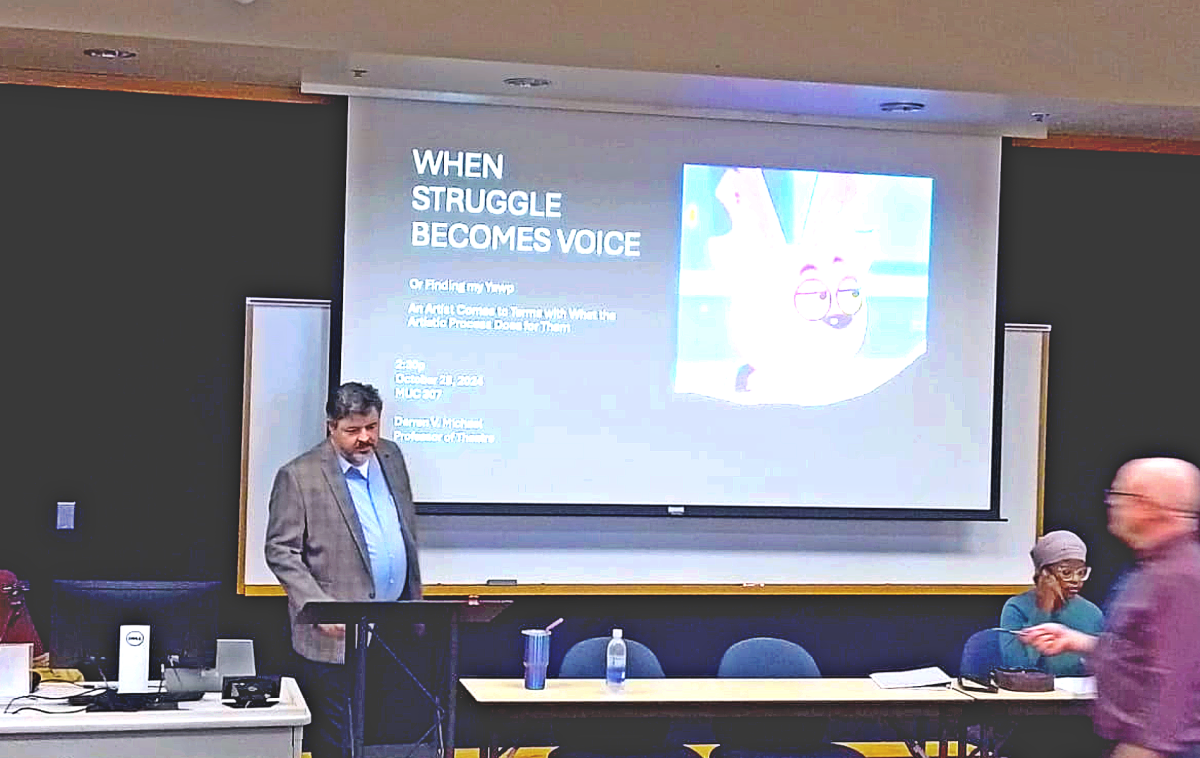While teaching writing at Mount Holyoke College, the great American writer, James Baldwin, encouraged a student, Suzan-Lori Parks, to write plays. And write she has, for nearly 40 years. Parks was born and raised in an Army family. She is said to have been a prolific storyteller since she was a small child. In 2000, this salient voice of the American experience became the first African American woman to win the Pulitzer Prize for drama.

This week, the APSU Theater and Dance Department will be staging Parks’ “In the Blood,” one of a handful of her masterpieces that dramatize American life as seen through a black woman’s eyes. “In the Blood” tells the story of a black mother with five children, each from a different father, all of which are absent.
Staging a play like this “is not normal fare for Austin Peay” Director and Assistant Professor Talon Beeson said. The story is an intersection of “institutional racism, sexism and poverty.”
“As a white man I will never understand what it is to be black, and for that reason we relied heavily on our cast and intentional theatrical processes to deepen our understanding of the work,” Beeson said.
Due to the realistic brutality of the subject matter, the cast took rehearsal time to process the script step-by-step, working with drama historians and cultural interpreters, probing the symbolic and the actual tragedies wrought up in the script. The play’s heroine is drawn from a recast mold of Nathaniel Hawthorne’s Hester Prynne, who, because of the child she birthed outside of wedlock, endured the scorn and torture of her community in “The Scarlet Letter.” The protagonist of Parks’ play is Hester, la Negrita. First-time actor Erica S. Harris holds the main role. Like Parks, Harris is affiliated with the army. Harris is a mother and custodian to her siblings similar to Hester.
Listen to our interview with Talon Beeson, director of “In The Blood” and assistant professor at APSU.
The supporting cast of five play dual roles, each as one of Hester’s children and also one of her adult antagonists. The nine scenes, cut into two acts, move quickly and the dialogue unfurls with a life of its own. Family banter, hymns and spoken word fill an intentionally sparse set with the sounds of life.
Listen to our interview with Erica Harris (playing Hester la Negrita) and Madison Courrege (playing Beauty and Amiga Gringa).
Despite the weight of the role and her first-play jitters, Harris wants to tell Hester’s story.

“[I want to] show that there are people who are out there who are trying to do better for themselves, trying to get resources and money for their children, and society just won’t let them,” Harris said.
This story is blistered by poverty, prejudice and cruel hypocrisy. In theatrical jargon, it is a tragedy. Having been woven by a masterful playwright, this slice of American history is a must-see, heart-wrenching drama. “In the Blood” contains mature content and the performance depicts acts both violent and sexual in nature. It is not recommended for people under 18 and children will not be seated.
The showings of the play are at the Margaret Fort Trahern Laboratory Theatre from Thursday Feb. 7 to Sunday Feb. 10. Curtains will rise on Thursday, Friday and Saturday at 7:30 p.m. and on Saturday and Sunday matinees at 2 p.m. There will be talk-backs with the audience at the Saturday, Feb. 9 matinee. Tickets are $5 for students, faculty and staff and $10 for the general public.







